Spotlight on Marshal Thrasher
Marshal Thrasher is a Research Assistant at Dalhousie University in Halifax, NS. He facilitates the measurements of the discrete samples to monitor the ocean carbon system.
The systematic measurements of chemical, biological, and physical parameters help to define signatures of the ocean at different points in both space and time. Onshore, I run a variety of measurements—alkalinity, pH, salinity, dissolved organic and inorganic carbon, and others—on samples from the Bedford Basin in Coastal Halifax (Gulf of Saint Lawrence), plus other locations like Iceland and up in the North Sea. Onboard, I am measuring just alkalinity, so it’s a bit of a break, sample-wise. Alkalinity refers to water’s ability to neutralize acid and is an important factor in the ocean’s response to increasing carbon dioxide.
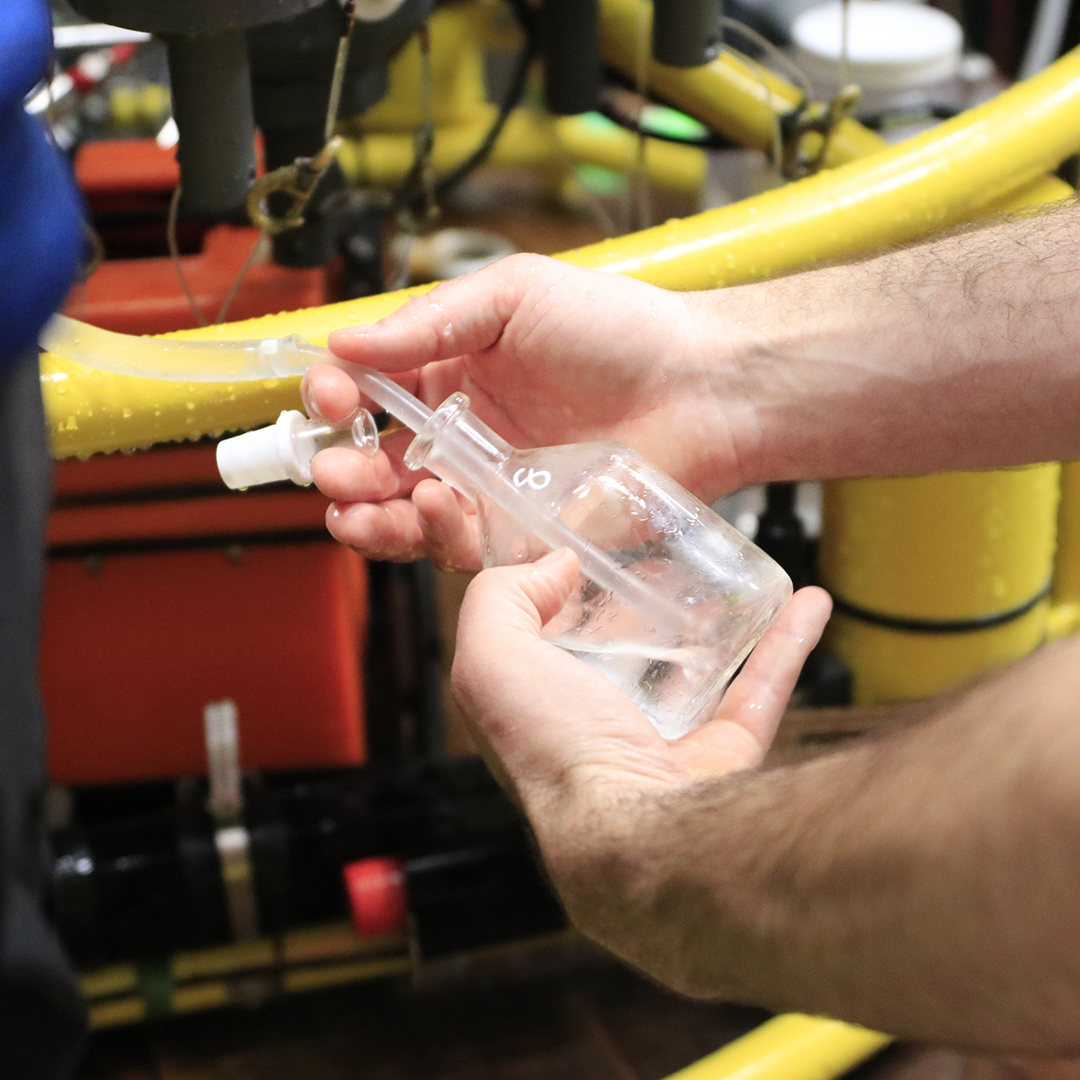
A small amount of seawater is collected for each sample.
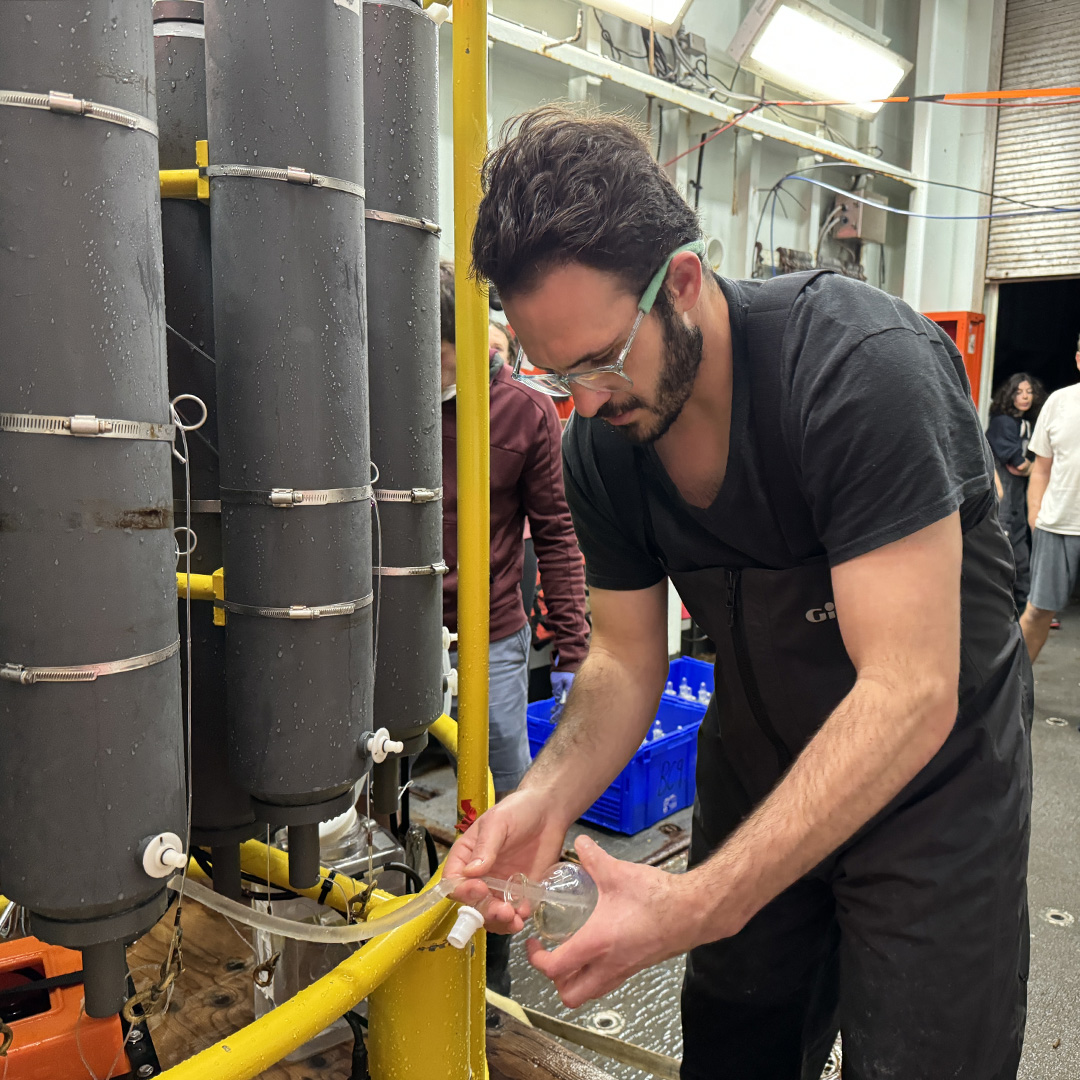
Seawater pH is measured onboard using spectrophotometry.
Once the water samples are collected from the CTD rosette, they are brought to room temperature in a water bath. For each sample, we use a mechanical system to draw up a very precise volume of seawater to process. This is then kept at a constant temperature using a double-walled flask through which temperature-controlled water circulates. An automated system injects small amounts of a weak acid into the sample to introduce hydrogen ions, and the corresponding conductivity is measured by an electrode. From this measurement, the alkalinity can be calculated.
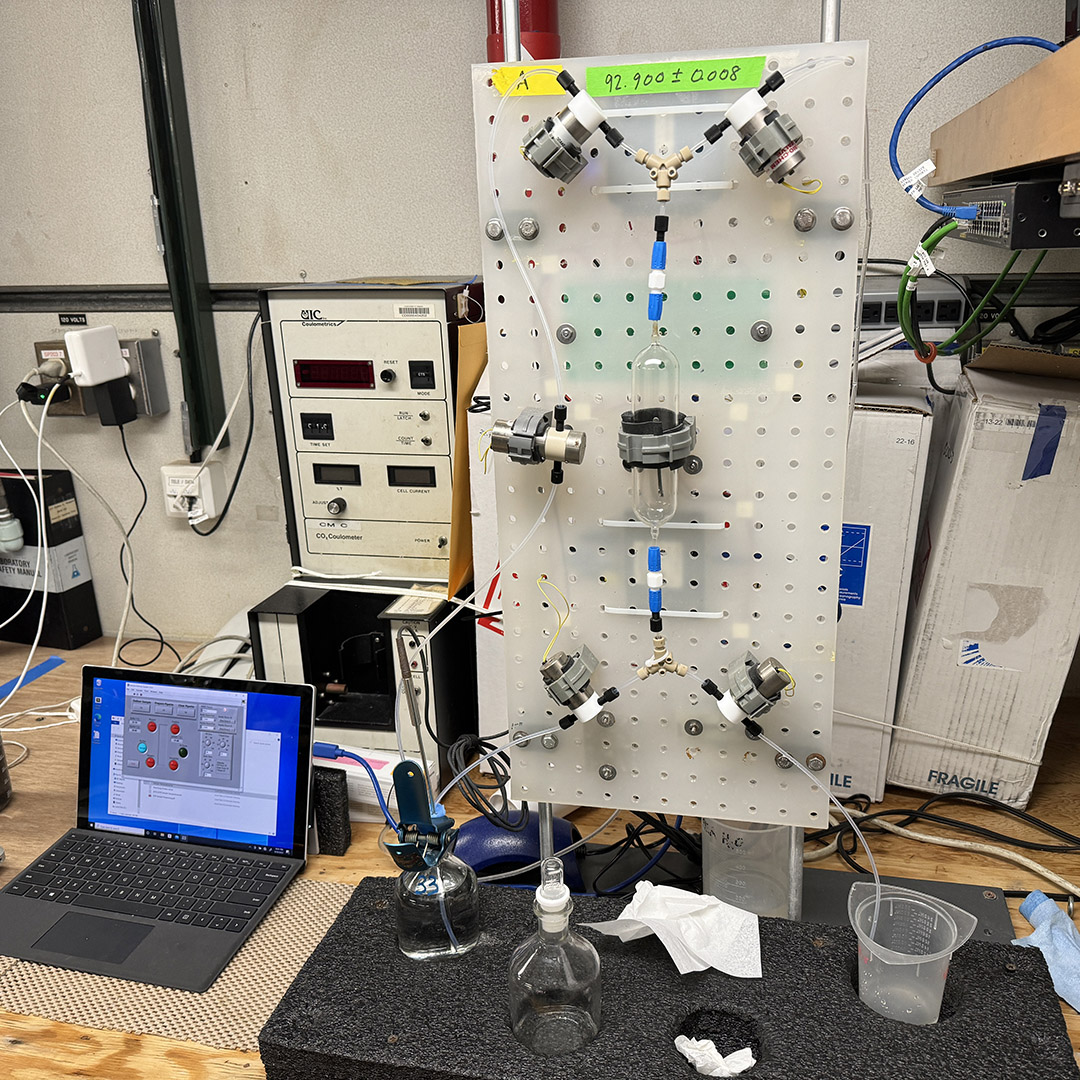
This system draws up a very precise volume of each sample to be analyzed.
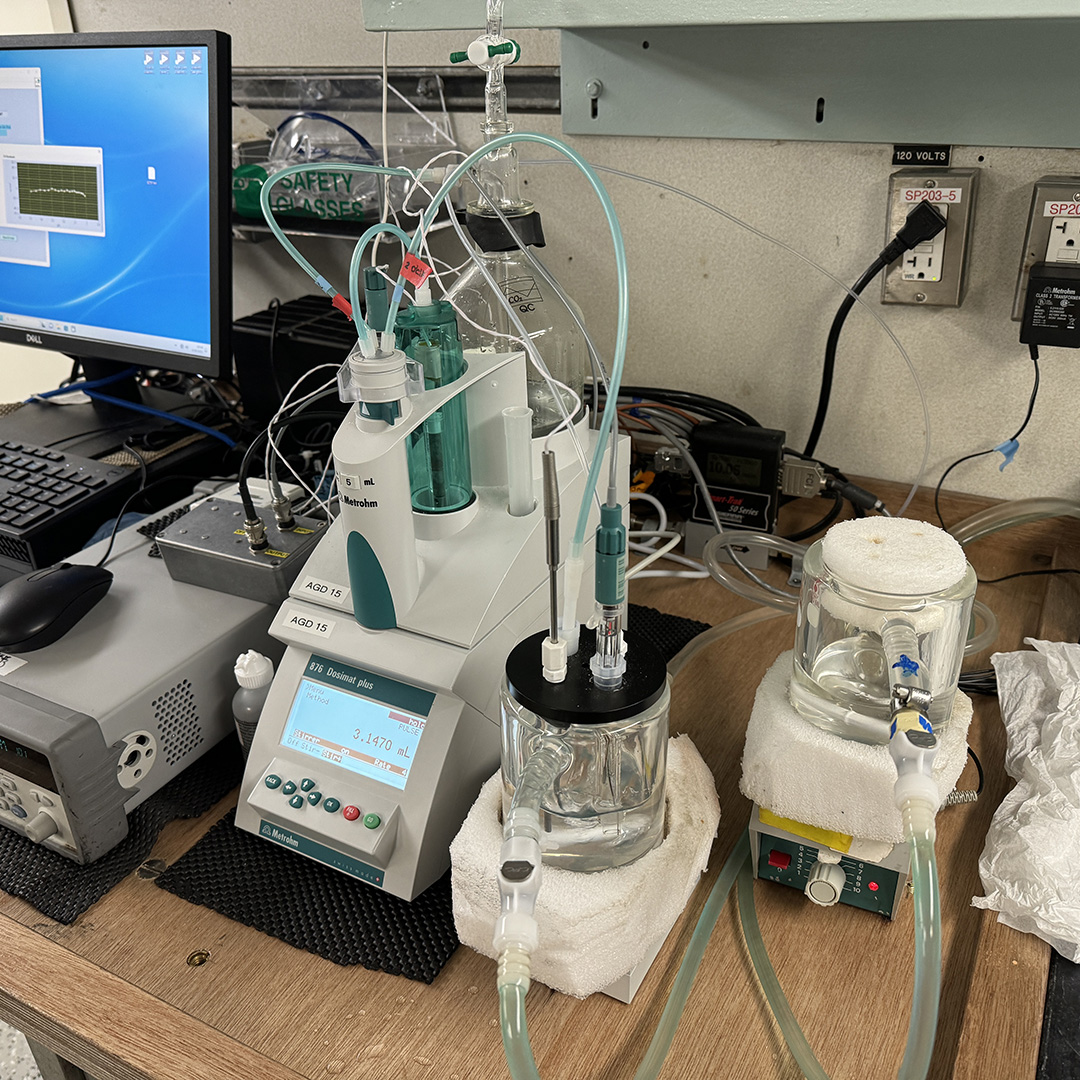
This system uses an electrode to measure the sample and calculate the alkalinity.
I moved to Halifax, Canada from San Diego with my partner when she started her master’s degree with Dr. Doug Wallace, the Canada Research Chair in Ocean Science and Technology at Dalhousie University. After a couple of months of unsuccessfully hunting for a decent job, we asked the head of her lab if there were any open positions, and through blind luck or perseverance, I was offered a position in the lab. While I got a degree in Math, I now run most of the carbon system measurements. I find it more beneficial to reach out and ask for help that to sit in a rut wondering how to get out. Use your resources, and don’t be afraid to help other people when you can!
Variety is the spice of life and now I find myself on a research cruise close to Antarctica! What is most useful for me is that I enjoy the work that I do. I’ve tried several things—liked some, hated others—but I’ve definitely benefited from having a diverse background. It helps with my day-to-day problem solving, in ways that a rigid, structured path would have limited me. I guess if you find something fun, you can do it forever. So, test your luck, push your limits, and spice it up every once in a while.
For instance, I used to be a stage manager setting up concerts, which instilled in me a drive to finish before the production deadline out of necessity. When Bruno Mars or Kendrick Lamarr is in town, the show—quite literally—must go on. So having a specific goal is probably the strongest guiding factor. Within that, you can let your creativity flourish. As a quick example: when a spotlight went out for a smaller artist, we had to change all the lighting cues for the rest of the show. And for lighting, the best compliment is that no one noticed you. Being able to pivot mid-game when the unexpected happens is vital. This relates to my current role more on a smaller, frustrating level. When a machine starts to act funny, I have to change gears and diagnose a problem, fix it, and then go back to what I was doing before. I have agonized for weeks on problems that seemingly ended up fixed themselves, which is always a good reminder to find humor in the tedium.

Marshal setting up the lighting for a show at UCSD (Photo by M. Thrasher).
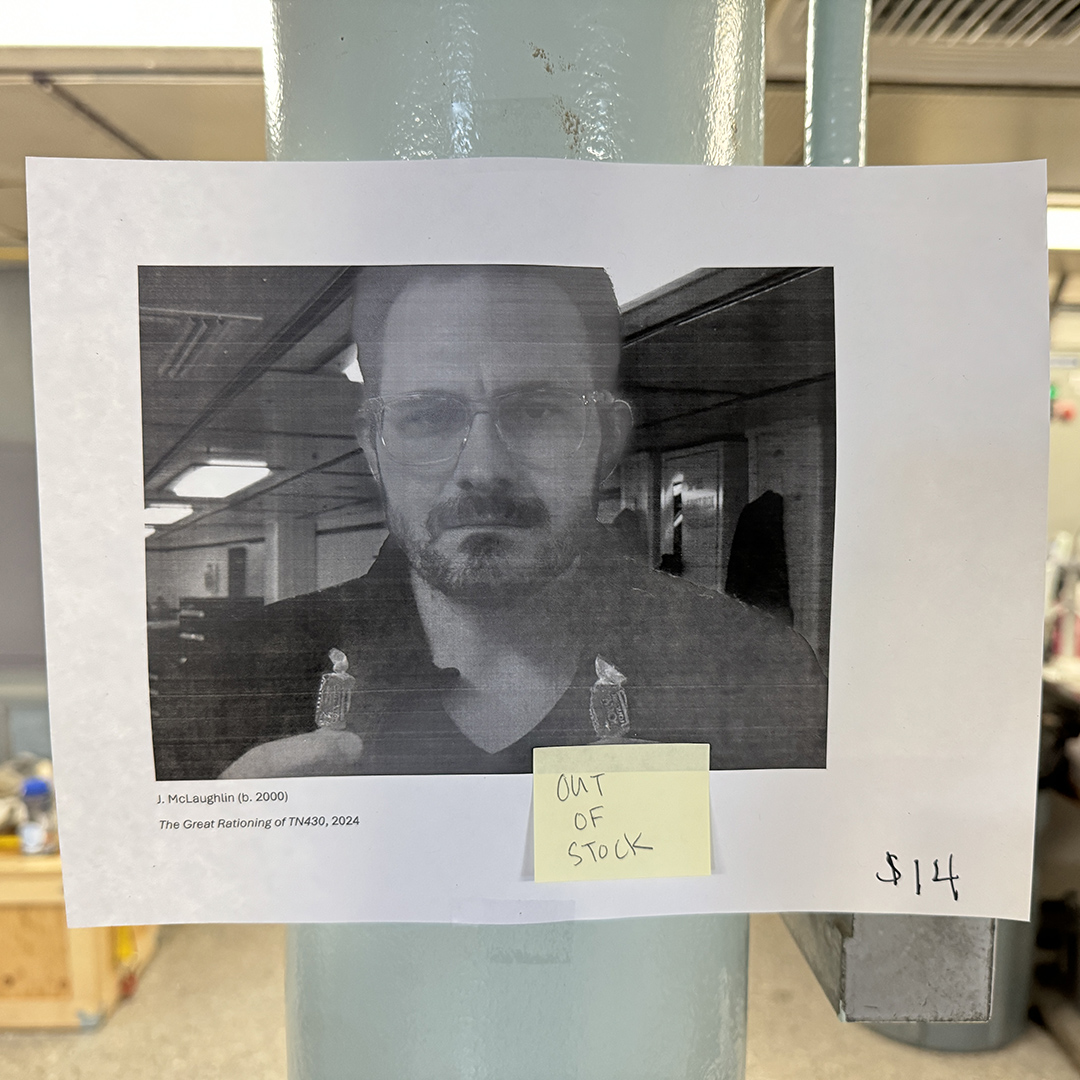
Marshal’s sense of humor was well known on the day shift.
For anyone interested in the field of Oceanography, I would suggest reaching out to people doing research that you are interested in. Being able to connect to people is an invaluable skill to have. After being competent, a positive “can-do” attitude will aid you much more in your pursuits than anything else, plus, it’s free! I implore anyone and everyone to try new things, take the spicy option, and make friends along the way!
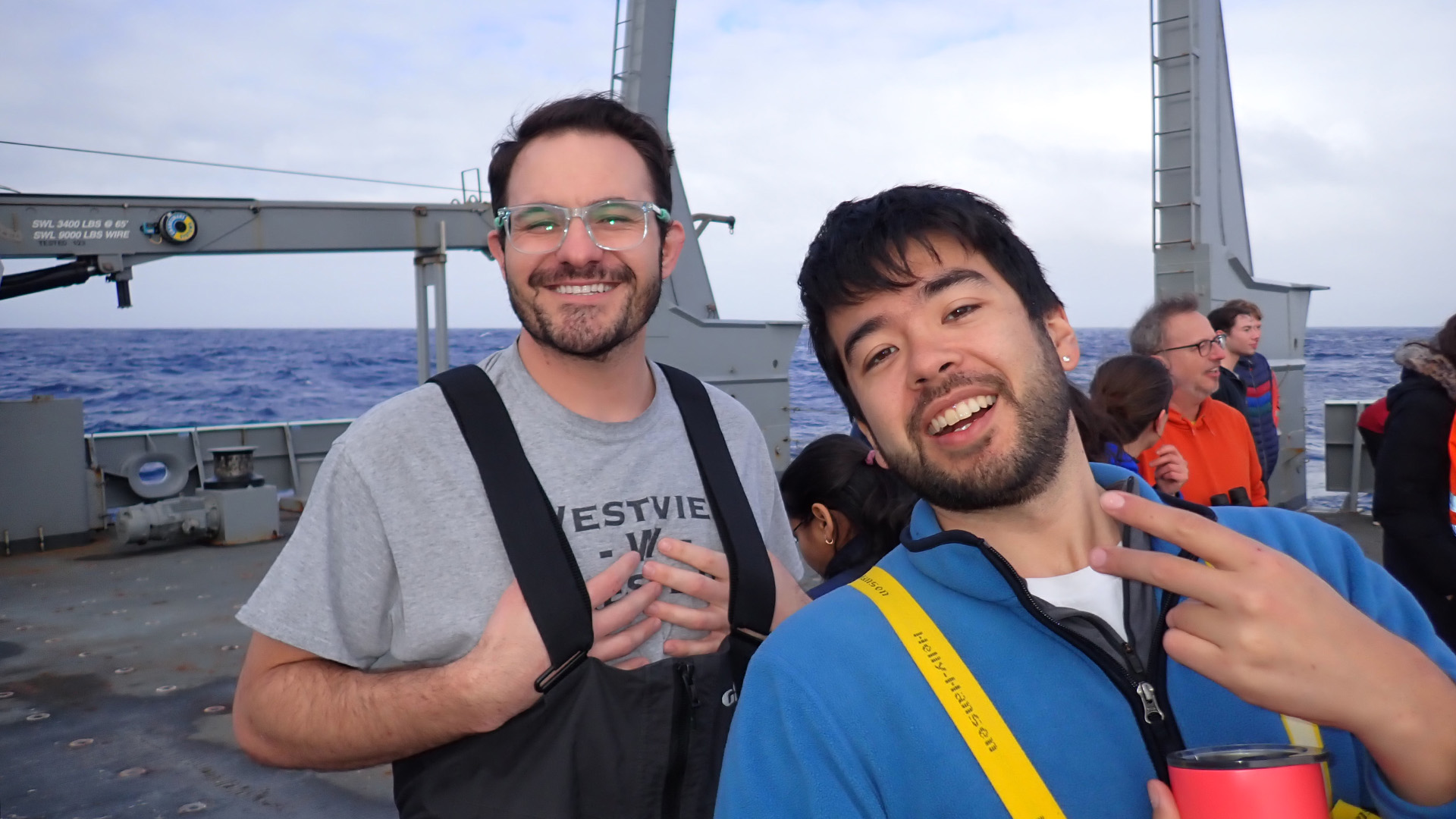
Marshal enjoys one of the beautiful Indian Ocean sunsets with CTD Watchstander Tatsu Monkman and others on I08S. (Photo b J. McLaughlin).
